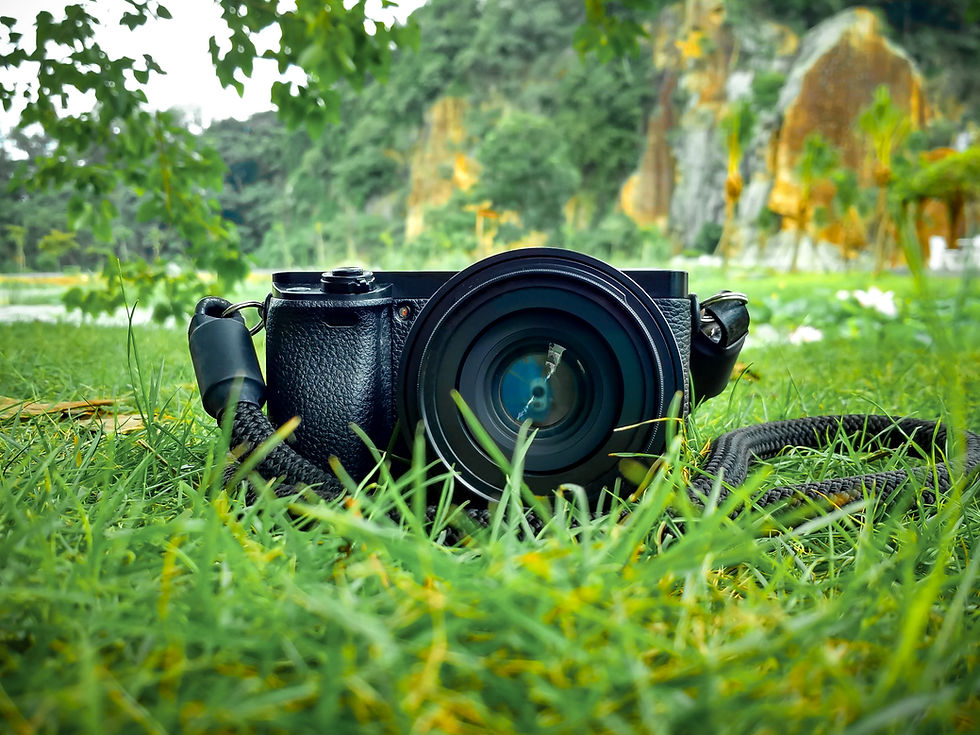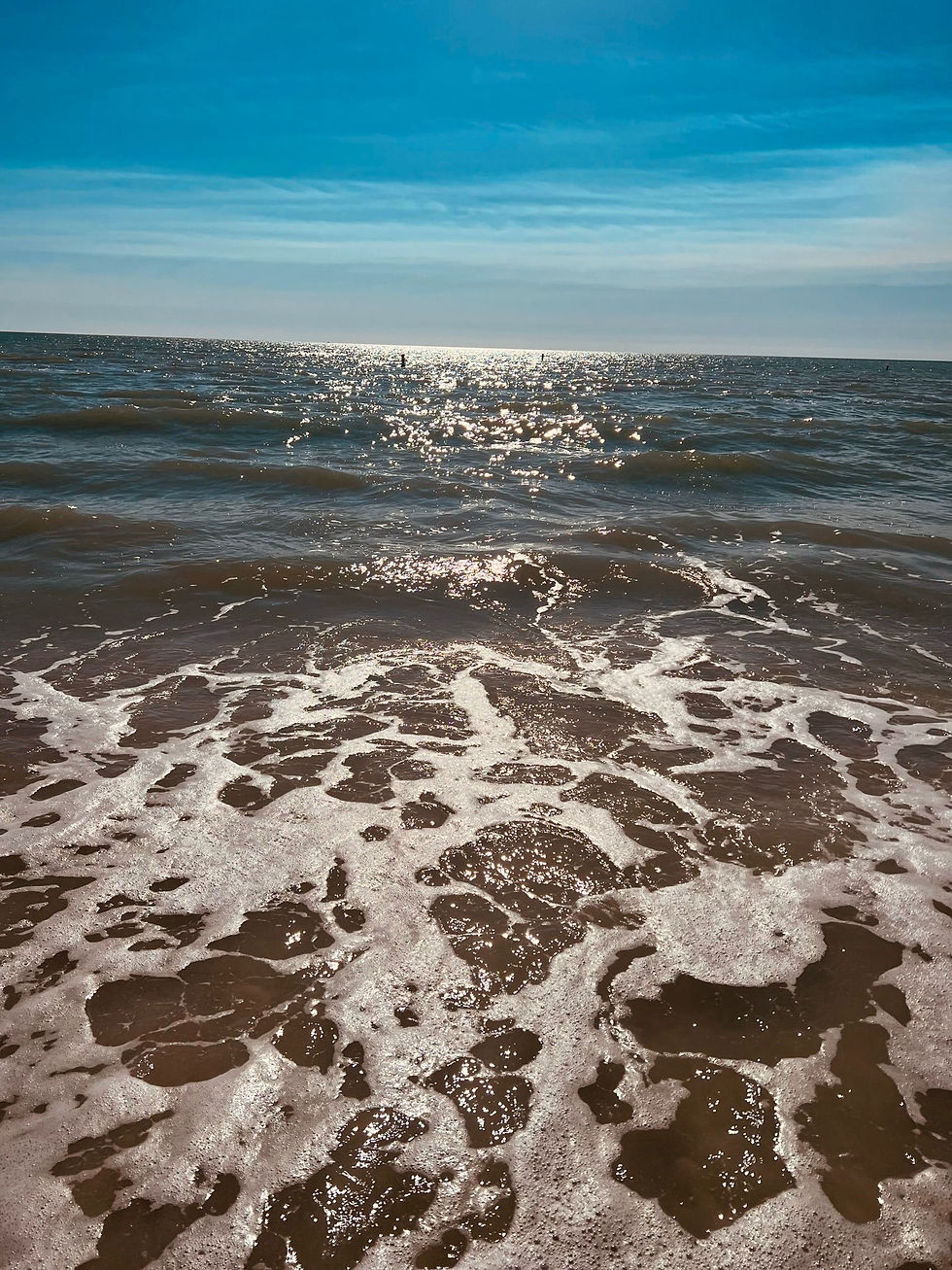How the Ocean Inspired My Writing: A Journey from Shore to Story
- Megan Woolley
- Jul 17, 2025
- 4 min read
Introduction: The Day the Ocean Spoke
The ocean has never been silent to me. It doesn’t just crash against the shore, it speaks. In 2008, on a windswept Oregon beach, I stood knee-deep in saltwater, watching the waves carve intricate patterns into the sand. Most people would see only tides, but I saw words. The foam formed sentences; the retreating water erased them like a cosmic editor. That moment became the seed for The Rise of the Ocean, a novel where the sea isn’t just a setting—it’s a living, breathing character with its own motives, secrets, and voice.
But this wasn’t always my story. I was never supposed to be a writer.
The First Whisper: When Photography Wasn’t Enough
A Life Through the Lens
My first love was photography. For years, I chased light—across frozen mountain peaks, through storm-lashed beaches, into the quiet golden hours of forgotten coastal towns. I believed a single frame could capture a story. And sometimes, it did. A photograph of an old fisherman’s hands, gnarled like driftwood, told of decades at sea. A black-and-white shot of a decaying pier whispered of abandoned dreams.
But in 2008, something changed.
The Day the Ocean Answered Back
I was in Cannon Beach, Oregon, documenting the way winter storms reshaped the coastline. As I adjusted my camera’s aperture, a wave surged farther inland than usual, soaking my boots. And then—I heard it.
Not with my ears. With my bones.
The ocean didn’t just look alive that day, it spoke. Not in English, not in any human language, but in something deeper. A rhythm. A pulse. A story waiting to be transcribed.
That night, I didn’t sleep. I filled an entire journal with what I can only describe as dialogues with the waves. Questions I’d never thought to ask, answers I didn’t know I needed.
Key Insight: "Creativity doesn’t always start with words. Sometimes, it starts with silence—and then, something breaks it."

From Image to Imagination: How Photography Shaped My Writing
Seeing Stories Everywhere
Photography trained me to notice—the way a cracked hull on an abandoned ship wasn’t just decay, but a mystery. What happened here? Who walked these decks last? A fisherman’s net tangled in kelp wasn’t debris—it was a warning. What escaped this trap?
When I transitioned to writing, I didn’t just describe the ocean. I listened to it.
The Camera vs. The Pen
Photography captures a moment.
Writing captures what led to that moment—and what follows.
A photo of a shipwreck shows rust and rot. But prose can tell you about the storm that drove it ashore, the captain’s last words, the locket still hidden in the captain’s quarters.
Exercise for Writers: Take a photo you’ve shot (or find one online). Now, write the story behind it, not just what’s in the frame, but what happened before and after.

The Novel’s Tide: How the Ocean Shaped The Rise of the Ocean
The Drowned Library: Fact Meets Fiction
In my novel, the Drowned Library is a place where ship logs, letters, and drowned sailors’ last words are preserved in coral. This wasn’t pure imagination—it was inspired by real ship logs I found in a coastal Maine archive, their ink blurred by seawater, their pages stiff with salt.
The Hollow Current: A Legend Reborn
Newfoundland fishermen speak of a whirlpool that doesn’t kill—it erases. Sailors enter it and return years later, unchanged, while the world has moved on. My version, the Hollow Current, became a time-slip where my characters confront their pasts.
The Leviathan’s Bargain: Fear of the Deep
Old whaling logs mention something bigger than whales lurking beneath ships. My Leviathan doesn’t want flesh—it wants memories. The price for passage? A cherished moment, gone forever.
Fun Fact: I wrote the entire Leviathan scene during a hurricane. The power went out. I finished it by candlelight.
The Ocean as Co-Writer
Why I Write Best During Storms
There’s a reason The Rise of the Ocean took 15 years to finish. Calm days? Useless. But when the wind howls and the waves shake the house? That’s when the words flow.
The Unexpected Editor
Sometimes, I’d read a draft and know something was off. I’d take it to the shore, read aloud, and let the tide’s rhythm show me where the pacing stumbled.
Try This: Read your work aloud near running water—a river, a fountain, even a bathtub. You’ll hear clunky sentences like never before.
Writing Prompt: Let Nature Speak to You
"Go to a natural space—forest, lake, desert. Don’t just observe. Listen. What story does it want to tell?"
Example:
A twisted oak isn’t just a tree—it’s a guardian. What has it seen?
A cracked desert floor isn’t just dry earth—it’s a map. Where does it lead?

Conclusion: The Ocean Never Stops Talking
The Rise of the Ocean was never just my story. It was a collaboration—between me, the waves, and every sailor’s ghost who whispered in the wind.
Now, I want to ask you:
Has a place ever ‘spoken’ to you?
Do you create better in chaos or calm?
Let me know in the comments, and if you try the writing prompt, share what you discover!

Comments